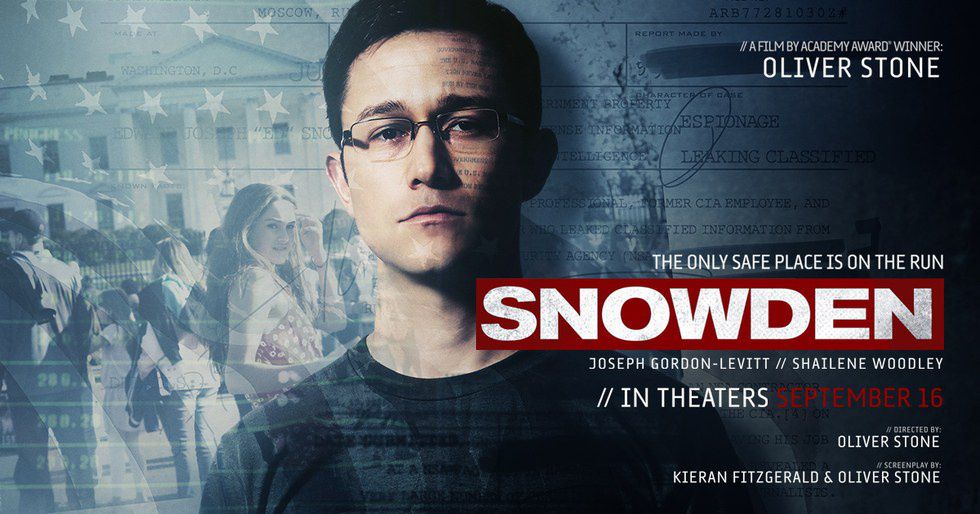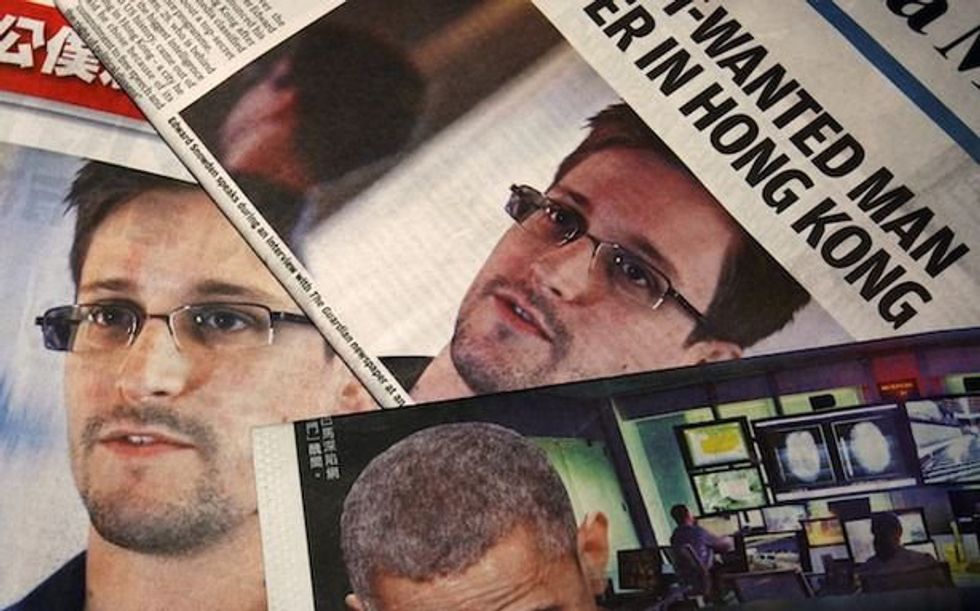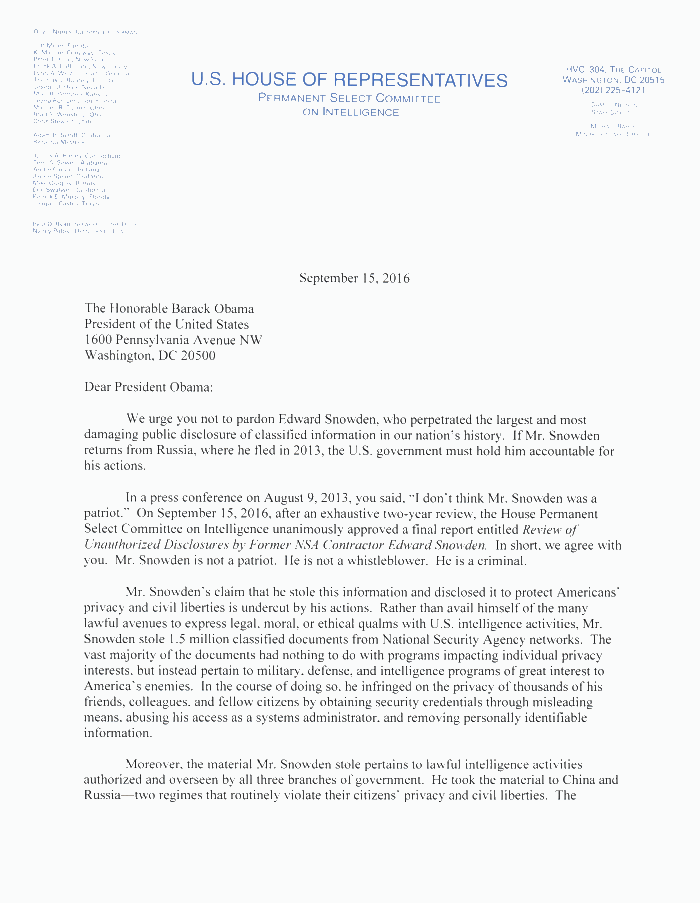Director Oliver Stone took a clear stance on Edward Snowden’s actions in the recent movie Snowden, and the topic has begun to rumble all over again.
In 2013, former information contractor, Edward Snowden, released to the American public a plethora of classified information about the NSA’s collection of surveillance and bulk data. The result was upset civilians, outraged that government had been watching them without out their consent and that online companies, such as Google and Yahoo, had been releasing their information to the NSA. After hearing James Clapper, director of National Intelligence at the time, lie under oath in a testimony, saying that no mass data was collected on U.S. citizens, Snowden decided to go to Hong Kong and off the grid. There he met with journalists of multiple newspapers, such as the Guardian, a UK paper, who then released the information to the public. Information including the amount of metadata, the time and recipients of phone calls as opposed to the content, and the names of companies had been the feeding people’s information to the government. Many believe what Snowden did was dangerous and treasonous, exposing secret information where other countries or other people could see them, but many, including Oliver Stone, believe Snowden is a patriot and a hero.
Currently he is holed up in Russia, and if he comes back to the United States he will be arrested for treason. With the movie recently released there has been a resurgence of a movement for President Obama to pardon Snowden, countered by many other federal officials, such as the House Intelligence Committee sending a letter to the president pleading him not to pardon. If someone has the ability to save someone who has been unjustly criminalized, I believe it is the right thing to do to use it. People are arrested to protect the American public and punish those who hurt it, but the only thing Snowden has done was protect our values.
In the House Intelligence Committee letter to President Obama urging the president not to pardon Snowden they wrote “[Snowden] perpetrated the largest and most damaging public disclosure of classified information in our nation’s history.” They also claim that the majority of the documents Snowden downloaded do not have to do with privacy, but instead pertain to military, defense, and intelligence agencies. Ben Wizner, the American Civil Liberties Union lawyer representing Snowden, responds with the wide array of reports saying the N.S.A. were unaware of the documents that were taken. Based on a NPR interview, the House Intelligence committee also claims that Russia has secret files provided by Sowden, but Wizner has pointed out the allegation is uncorroborated.
The fact of the matter is that Snowden broke the law. That is undeniable, but it is insane to believe such an important infamous case is that simple. Murder is against the law, but without a jury and proper inspection an innocent civilian can be sent to jail for the rest of their life for defending himself from a serial killer. Snowden’s acts were a form of defense. He saw that the American people’s constitutional civil liberties were being breached without a chance for us to defend it, and now we are punishing him for defending the public. Thousands of soldiers serve all around the world, risking their lives to protect their country, and come home commemorated for their service, but now a man is being punished for the same thing.
The Snowden conversation in many ways is just a catalyst for the real debate, surveillance. He did what he did so the American people and politicians could debate over the topic, and it would be wrong if I didn’t even acknowledge what his sacrifices were for. I am not going to take a stance on the debate of surveillance, because that is not what I am standing for, I stand for the man who risked his life to protect our right to debate this topic. The main arguments for surveillance are that safety is more important than privacy, if you are innocent you have nothing to hide, and that it has no detrimental effects. The pro surveillance side often cites how crime rates go down when cameras/ surveillance systems are installed in cities, such as Camden, New Jersey. Their argument is that surveillance is efficient in keeping people safe. Another key phrase they use is that if you have done nothing wrong then it doesn’t matter if you are being watched. Only people who are guilty have to be worried, because it means they are more likely to be caught, but if you are innocent you have nothing to worry about. Finally in the large debate of the government’s mass collection of metadata, the NSA’s argument is they only cares about the criminals, all other information is not focused on. The anti-surveillance side still has a problem with it however, questioning why the data that isn’t focused on is still stored for periods up to two years. They believe that those who haven’t done anything shouldn’t be watched, and that the current surveillance situation, including metadata collection, is against the Constitution. The fourth amendment in the United States Constitution states that every man is secure “against unreasonable searches and seizures, shall not be violated, and no warrants shall issue, but upon probable cause,” so the anti-surveillance side believes that surveillance violates the Constitution by doing searches and seizures of our information without probable cause. Lastly they use a pathos approach and remind everyone of all the soldiers and government officials who have given their lives to defend our civil liberties, only to have them violated now by our own government.
The debate over surveillance is complex and quickly becoming embedded into American politics and society, but it is only really possible because of Edward Snowden. Without his risks and sacrifices the American public would have continued to be unaware of the mass surveillance by the government and NSA. He saw an American civil liberty being attacked without their knowledge, and leveled the playing field. He is a patriot to his country's core values who is now being charged with betraying the same country he believes he is saving. There is no malicious intent or looming threat from him, and is that not why we arrest people? The Fourth Amendment states that there needs to be “probable cause” to be seized or arrested, but all the evidence points to his cause being genuine patriotism.
























